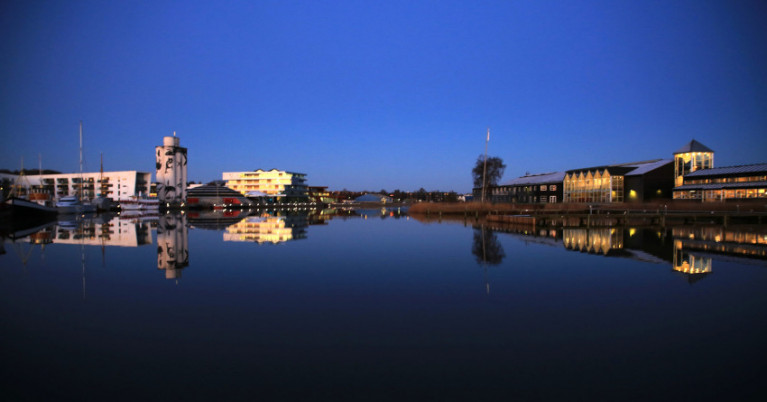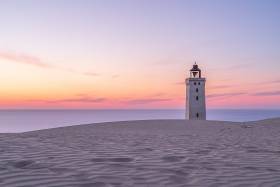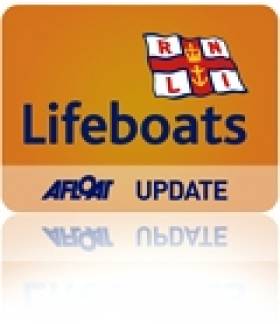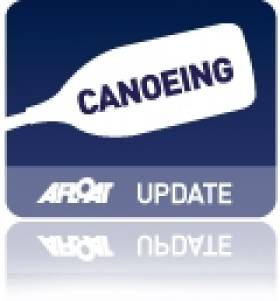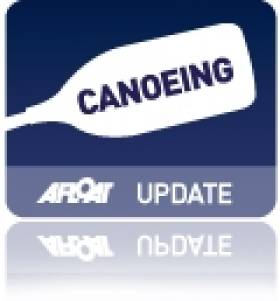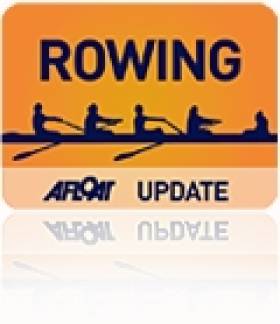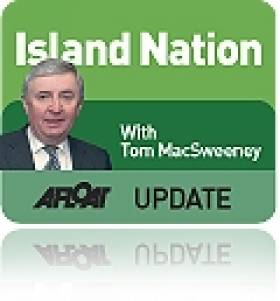Displaying items by tag: Denmark
British Plan to Ban Bottom Trawling Breaks Brexit Fishing Deal, Denmark Says
A report in The Guardian says Denmark has accused the UK of reneging on the post-Brexit fisheries deal by pushing for a ban on bottom trawling at the Dogger Bank.
Danish boats have fished the area for hundreds of years and today the country’s industry lands €3.6m worth of sand eel from Dogger Bank every year.
The North Sea conservation zone hosts a number of species such as halibut, sharks and skate which are particularly vulnerable to disturbances of the sea bed.
Moves to ban the practice of bottom trawling have been welcomed by environmental groups.
But Denmark’s fisheries minister Rasmus Prehn says his country’s fishers “are already in a very difficult situation due to Brexit so this would be even more difficult for them and we can’t really accept that”.
The Guardian has more on the story HERE.
X-Yachts Hosting Open Weekend In Denmark Next Month
X-Yachts is hosting an Open Weekend at its base in Haderslev, Denmark on the weekend of Saturday 7 and Sunday 8 March for prospective buyers to get up close with its growing range.
The performance builder’s indoor showroom will have a variety of award-calibre yachts on display — including recent European Yacht of the Year winner the X4⁰, alongside the X4³, X4⁶ and X4⁹ recognised in Cruising World’s Boat of the Year awards.
The firm’s new Xperformance and Xcruising lines will be represented by the Xp 44, Xc 45 and Xc 38 — lauded by Sailing World and in the European Yacht of the Year gongs.
And X-Yachts’ in-house naval architects and designers will show the latest developments with the newly announced X5⁶ project.
Be sure to RSVP on or before Saturday 29 February to confirm your spot among the limited places available.
Ryanair flies on Mondays and Fridays between Dublin and Billund, which is some 80km north of Haderslev (1 to 1.5 hours by car, or a 2.5-hour journey by coach via Kolding). Trains also run from Hamburg in Germany via Flensburg towards nearby Vojens (3 hours approx).
Lighthouse On Rails: Denmark Moves Landmark Light From Eroding Coastline
A lighthouse in Denmark that was first lit in 1900 has been moved further inland on special rails to protect it from coastal erosion.
TheJournal.ie reports on the 23-metre-tall Rubjerg Knude, which was deactivated in 1968 yet remains a popular landmark in the far north of Denmark.
However, the area is subject to shifting sands and coastal erosion that saw the lighthouse museum and coffee shop abandoned in 2002, and even led to the dismantling of 750-year old church close by in 2008.
Originally 200 metres from the shore, the lighthouse was just six metres from the edge when works began last week to move it some 70 metres inland on a set of specially built rails to accommodate its heavy masonry.
It’s now hoped that the future of the lighthouse, described by Danish environment minister Lea Wermelin as “a national treasure”, has been assured until 2060.
TheJournal.ie has more on the story HERE.
Clifden RNLI Crewman Shares Lifesaving Skills On Danish Lifeboat
#RNLI - Clifden RNLI volunteer crewmember James 'Digger' Mullen was selected from thousands of RNLI volunteers to represent the charity last month on a European Lifeboat Crew Exchange in Denmark.
Lifeboat crew from seven European countries were invited on a week-long programme designed to improve maritime search and rescue (SAR) responses and help to prevent loss of life in Europe’s waters.
The initiative is run by the International Maritime Rescue Federation (IMRF) and comprises simulated search and rescue exercises as well as training modules, which were organised by the Danish Rescue Coast Service.
During an exhaustive week, Mullen had an opportunity to work with Danish lifeboat crew from three lifeboat stations and took part in various challenging scenarios with the Danish navy and the rescue helicopter crews.
Mullen, from the Clifden lifeboat in Co Galway, worked alongside lifeboat crew from Holland, Norway, Finland, Sweden, Iceland and Germany from a base in Hirtshals, a town on the north coast of Denmark. The area the local lifeboat crew operated in was completely different to Clifden with no breakers or islands off the coastline.
The group went to sea on Hirtshals lifeboat station’s two rescue boats: a 23m all-weather boat and a 9m fast response boat (FRB) that reaches speeds of up to 30 knots. The group travelled down the coast 40 miles to meet up with Thorup Strand lifeboat station and their 9m jet rescue boat Hurricane, which reaches speeds of 40 knots.
The team carried out a medical evacuation with a navy patrol boat and refueled the lifeboat at sea from the navy ship, while both vessels were travelling at 8 knots. The crew also took part in a joint lifeboat helicopter exercise; a common occurrence for lifeboat crew on Irish waters.
The week was full of simulated rescues and boat handling, with all the lifeboat crewmembers swapping their knowledge and feedback on what they found worked in different types of emergency scenarios in their own areas.
The final two days of the exercise were spent with the Danish navy and the team attended naval training school. They were taught how to board a life raft in big seas, how to abandon ship from a six metre bridge, and how to recover unconscious casualties into a liferaft.
At the end of the training there was a mass exercise. The pool was darkened, filled with smoke, wind, rain, lighting and thunder, and they evacuated their ship to find an unconscious casualty and recover them on to a nearby liferaft.
The final exercise was held in the navy fire fighting/damage control training centre. The group were taken onto a simulated navy ship and had to stem a growing ingress of water which was flowing in through numerous breeches and ultimately save the ship from sinking. This was to be done with timber, rubber mats, wedges, buckets, ropes, hand saws and hammers. In the freezing water which was pouring into the ship, the team all worked together to try and stem the flow and save the ship.
Commenting on the week, Mullen said: “I am extremely grateful that this exchange programme has been made possible through EU funding on the Lifelong Learning Programme. Our group of lifeboat crew from across Europe shared experiences with each other and listened to everyone’s feedback.
"Though we all spoke difference languages, we generally all do what we do the very same way, just using different boats with different equipment. Saving lives at sea is the same in every language."
RNLI divisional operations manager Owen Medland added: “We were delighted to have an RNLI volunteer crewmember on this exchange. The experience James has had in his role operating lifeboats off the west coast of Ireland is invaluable and we were keen to share this knowledge with a wider search and rescue community.
"There are always things we can learn from each other and it promotes a wider understanding of how saving lives at sea has evolved and continues to evolve due to improved equipment and continuing training.”
Ireland Canoeists Lose Time on Portages at World Championships
#CanoeMarathon2013: Ireland’s Jenny Egan and Peter Egan finished 15th and 19th respectively at the Canoe Marathon World Championships at Lake Bagsværd, Denmark, today. Jenny Egan started promisingly but was knocked back by her performances on the portages.
Peter Egan was generally faster on his portages on his paddle, but did lose control of his boat on one and lost time.
Last year, in Rome, Peter Egan finished 17th and Jenny Egan 16th.
Canoe Marathon World Championships, Lake Bagsværd, Denmark (Irish Interest, Selected Results)
Men, K1 (30.1 km): 1 H McGregor (South Africa) 2 hourse 10 mins 34 seconds; 19 P Egan (Ireland) 2:15.26.
Women, K (25.8 km) 1: R Csay (Hungary) 2:01.26; 15 J Egan (Ireland) 2:09.23.
Young Ireland Canoeists Find Going Tough in Denmark
#CanoeMarathon2013: Ireland’s junior and under-23 competitors struggled at the Canoe Marathon World Championships at Lake Bagsværd in Denmark today. Katrina Broderick finished 18th in the women’s junior K1, while Jack Seery was 33rd and Alexander Broderick 41st in the junior men’s K1.
At under-23 level, Seán McCarthy – in his first year at this level, was well down the field, while David Buggy did not finish.
Peter Egan and Jenny Egan compete in the men’s and women’s K1 tomorrow.
Canoe Marathon World Championships, Lake Bagsværd, Denmark (Irish Interest, Selected Results)
Men, K1 - Junior: 33 J Seery 1:43.10; 41 A Broderick 1:53.55.
Women, K1 - Junior: 18 K Broderick 1:34.31.
Rowing Ireland Appoint Espersen as New High Performance Director
# ROWING: Rowing Ireland have chosen Morten Espersen to be their new High Performance Director. The 61-year-old served as HPD in Denmark from 1993 to 2001 and went on to chair Denmark’s executive board for elite rowing. Denmark has had great success in the last two decades: their premier crew, the lightweight four, took three gold and two bronze medals in the last five Olympic Games, while the lightweight double scull took gold at London 2012. Fie Udby Erichsen also took a silver medal in the women's single sculls in London.
In a statement released by Rowing Ireland, Espersen said: “Rowing Ireland has the potential to succeed at the highest level and, working together with all stakeholders, I believe that this goal can be achieved.”
Espersen will take up his post in February. He will be based at the National Rowing Centre in Cork. He succeeds Martin McElroy, who has recently been appointed Performance Director for men's rowing in Canada.
How Many Times Do I Have to Say the Sea is Vital to Ireland?
Ireland has the largest maritime area-to-land mass in the European Union, but derives only 1% of GDP from the maritime sector. At a time when the economy needs every benefit it can get this figure is startling, particularly when compared to countries with other extensive coastlines, such as Norway where the figure is 20%, Denmark where it is 11% and even the UK which has increased its figure to 5%.
Despite being an island nation with a strong dependency on the sea, the Irish maritime economy is still in its infancy, both in terms of investment and of recognition.
Once again the importance of the sea was shown in the pre-Christmas weather problems. When air transport again failed the public, the ferries continued to operate. When road transport needed salt for gritting to keep roads open, it was ships which brought the salt to Ireland.
How many times do I have to challenge the ignorance and stupidity of the State, of Government, towards the sea? How many times do I have to remind the public of how dependent we are on the sea as an island nation?
Though still considered a low priority by Government, the maritime sector is worth €3 billion to the nation and supports 440,000 direct and indirect jobs. According to the Marine Institute in the "SeaChange Programme," this could be increased by at least 50%.
In Cork the Coastal and Marine Resources Centre which is part of UCC's Environmental Research Institute and has been working out of the Naval Base on Haulbowline Island has changed its name and is planning to move to a new maritime research facility. It has become the "Coastal and Marine Research Centre".
For over ten years the CMRC has been promoting the use of integrated coastal zone management as a means of achieving sustainable development in the use of coastal and marine resources, including marine ecology, seabed mapping, coastal processes, remote sensing, geology and geomatics.
A new maritime research facility is planned at Ringaskiddy, adjacent to the National Maritime College, part of the announced intention to establish a Maritime and Energy Research Campus and Commercial Cluster. The Department of Communications, Energy and Natural Resources, Bord Gais and the UCC Glucksman Foundation contributed funding, together with €7.5m. from the Higher Education Authority. As part of the National Ocean Energy Strategy, it will "bring together on one site the people, their ideas and the infrastructure to support the development of ocean energy," according to MERC Chairman, Peter Coyle. "Our aim is to produce innovative technical solutions to support the development of the Irish maritime sector."
This will include ocean energy opportunities, such as wave power where Irish companies have been leading the way. Shipping, logistics and maritime transport, marine recreation, maritime security research and maritime space applications are amongst other aspects of research work to be undertaken in Ringaskiddy.
Valerie Cummins, who led the Coastal Marine Resources Centre over past years has been appointed Director of MERC and is being replaced as Director at the newly re-named Coastal and Marine Research Centre by Jeremy Gault.
This article is reprinted by permission of the EVENING ECHO newspaper, Cork, where Tom MacSweeney writes maritime columns twice weekly. Evening Echo website: www.eecho.ie



























